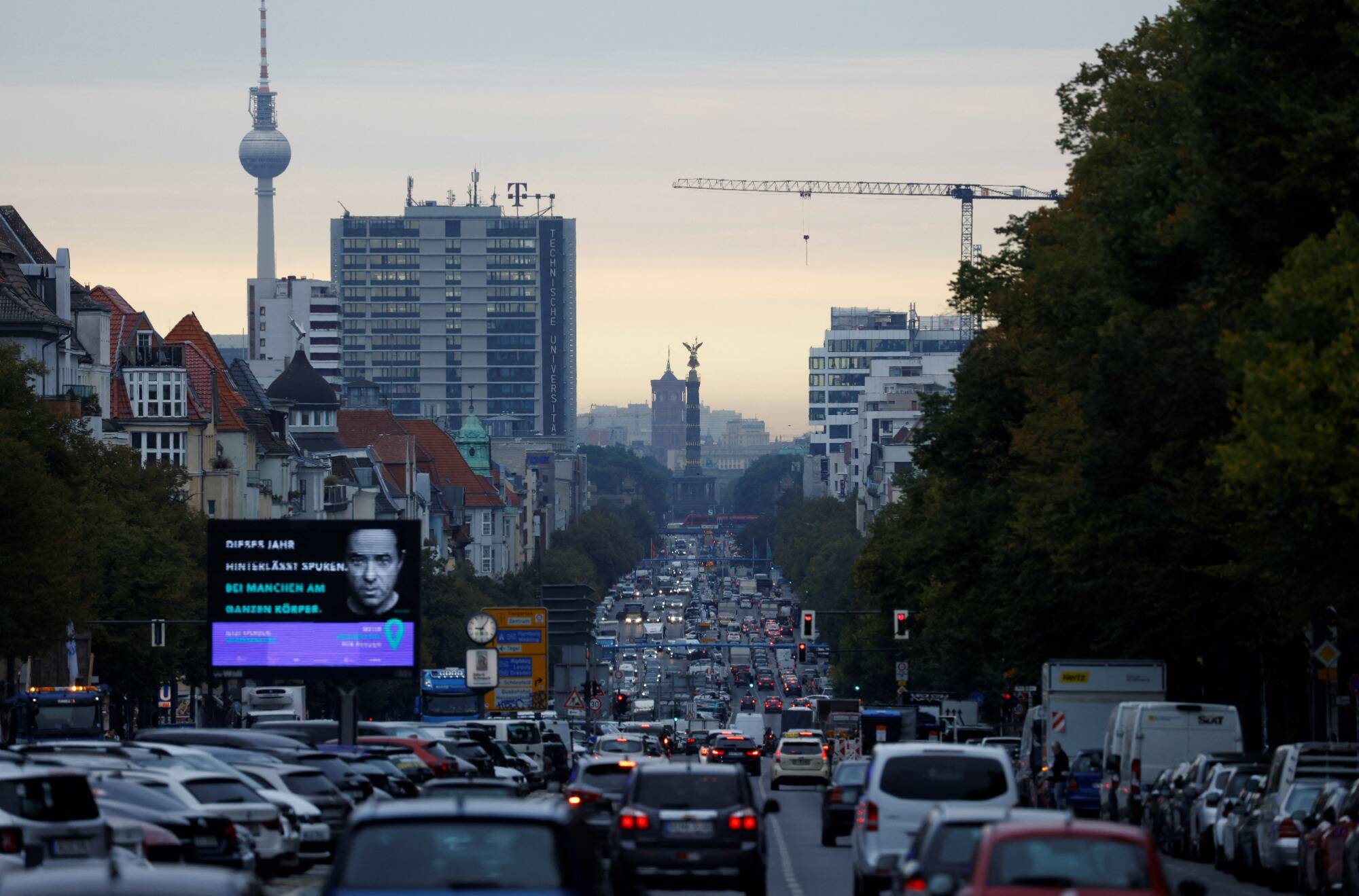
To counter this, demonstrations are organized in the form of a column “against Russophobia” showing Russian flags in the country, which is home to the largest diaspora in the European Union, causing controversy for their lack of distance. aggression.
New parades of this type are planned for Sunday, especially in Frankfurt and Hanover.
The organizer of a convoy to Berlin last Sunday that brought together 400 vehicles, Christian Freier, 40, has since received hundreds of death threats daily and dire images of bodies being mauled or burned.
The website of his car garage was hacked and his online viewing figures plummeted: “my life is hell”, complains this Russian-German.
Few political messages were waved in the motorcade that shocked the German political class the day Boutcha’s atrocities came to light.
However, a woman was arrested for displaying the letter “Z”, a symbol of support for the Russian army and now banned in Berlin.
‘My aim was only to protest against the daily attacks on Russians in Germany’assures mr. Freier, claiming that his demonstration had nothing to do with the conflict he certainly does not want to talk about.
Since the beginning of the Russian invasion of Ukraine, 383 anti-Russian crimes and 181 anti-Ukrainian crimes have been officially reported to the German police.
Germany is home to 1.2 million people, themselves or their families, from Russia and 325,000 from Ukraine, with more than 316,000 Ukrainian refugees arriving in the past month.
“Cortège of Shame”
“Every war is reprehensible and none is justifiable”, proposes the co-organizer of the Berlin procession, the 50-year-old German René Hermann. he claims “don’t position yourself in this conflict”†
But far from journalists, the man turns out to be an influential blogger with thousands of subscribers to the social network Tiktok. Until the recent suspension of his account, he posted many messages typical of pro-Kremlin propaganda.
One of them claimed that “Prisoners say Kiev ordered staged massacre to manipulate Western thinking”†
“The reasons for taking part in these demonstrations are very heterogeneous”analyzes Jochen Töpfer, sociologist at the Otto-von-Guericke University of Magdeburg and specialist in Russian society.
“The organizer spoke of a demonstration against discrimination in Germany. In addition, Putin fans will certainly participate, or people who do not like Putin but do not want their country to be discredited despite the war.”he told AFP.
The Berlin parade sparked a wave of national outrage: the daily Bild spoke of “processions of shame”†
“For God’s sake, how can you allow this column of shame across Berlin?”took offense when he addressed the mayor of Berlin, Franziska Giffey, the Ukrainian ambassador to Germany Andrij Melnyk.
she answered him “to understand” her anger but indicated that she could not forbid a demonstration waving “Russian Flags”†
“westernized” Russians
security authorities “Keep a close eye on the extent to which Russian, but also Ukrainian citizens are at risk in Germany”said German Interior Minister Nancy Faeser.
Add: “we must be very careful that this war is not imported into our society”.
A hypothesis questioned by researcher Tobias Rupprecht of the Free University of Berlin: “Most Russians here have a much more critical view of the conflict, they are generally much more Western than the Russians in Russia.”
Anyway, “the longer the war lasts, the greater the risk that a greater number of crimes will be committed in Germany in this context”fears Mr. Topfer.
Russian organizations have also condemned the marches.
“We will not tolerate the few instances of discrimination being used as a cover for pro-Putin propaganda events”warned the interest group of the Germans of Russia in Hesse (IDRH).



